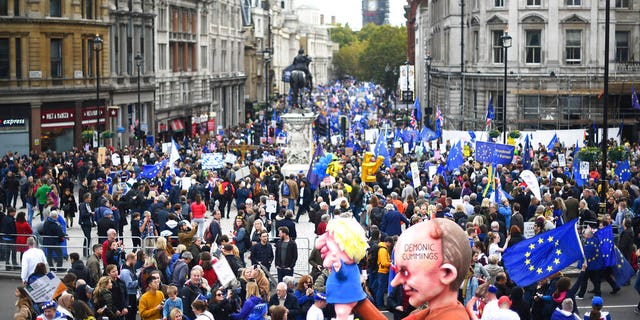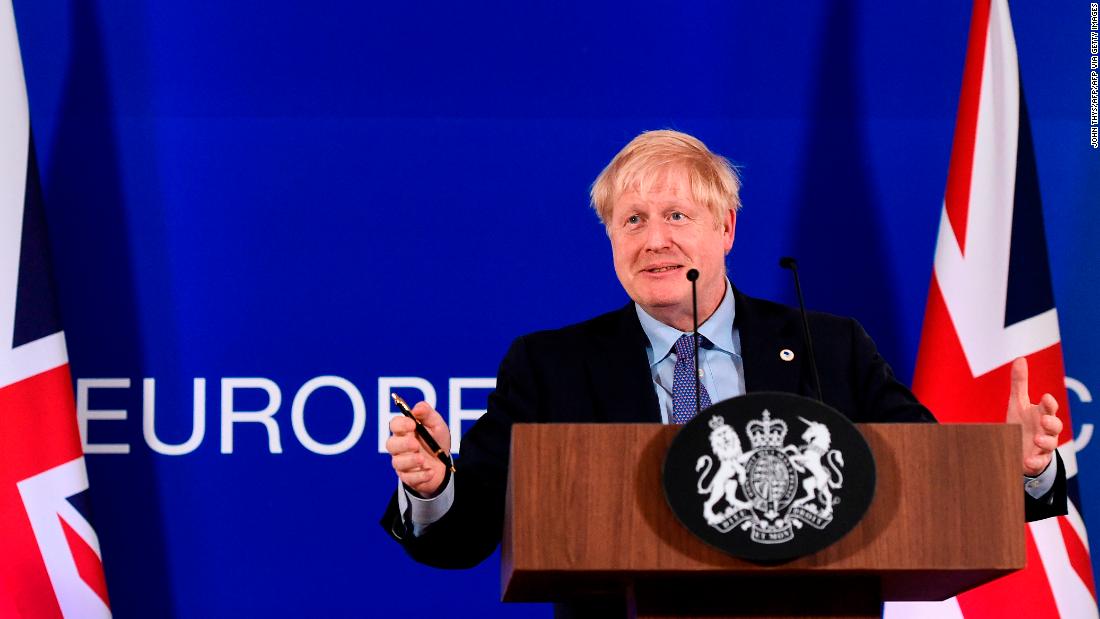President Trump’s modification of U.S. policy on Syria has generated a torrent of confusion, so it’s worth reviewing the record.
White House press secretary Stephanie Grisham announced on Oct. 6:
Turkey will soon be moving forward with its long-planned operation into Northern Syria . The United States Armed Forces will not support or be involved in the operation, and United States forces, having defeated the ISIS territorial “Caliphate,” will no longer be in the immediate area.
The statement is notable both because it declines to oppose the Turkish invasion — aimed at the Kurdish-led, U.S.-allied Syrian Democratic Forces (SDF) — and because it suggests that the U.S. will stay in Syria, but will move its forces from the “immediate area” that Turkey is attacking; nothing in these remarks can be read as saying that the U.S. would be withdrawing from Syria.
Advertisement:

The initial report from AP (10/6/19) described US troops not “pulling out” but “step[ping] aside.”
An anonymous senior U.S. official quoted by the Associated Press (New York Times, 10/6/19) said that the U.S. will “pull back [its troops] from the immediate area” in northern Syria that Turkey is assaulting. The official, however, went on to say that the Turkish onslaught “is expected to trigger a large combat response from the SDF, and U.S. troops will almost certainly withdraw completely from Syria.”
Trump tweeted that of the 1,000 troops the U.S. admits to having in Syria, “we only had 50 soldiers remaining in that section of Syria, and they have been removed.” But he has also framed this development as part of a longer-term process of getting out of wars in Syria and elsewhere, tweeting, for example, that “we are slowly & carefully bringing our great soldiers & military home.”
Meanwhile, the Pentagon statement on Syria said nothing to suggest the U.S. would be withdrawing from the country.
To summarize, an anonymous official speculated that the U.S. might eventually leave Syria, while Trump tweeted that the U.S. was merely shifting “50 soldiers remaining in that section of Syria,” at the same time indicating that he eventually wants to bring the troops home and leave Syria alone, without offering anything close to a concrete plan or timeline. Neither of the two official U.S. government statements — the one from Grisham or the one from the Pentagon — can possibly be taken to mean that the U.S. is taking its hands off Syria, and there is simply no evidence that that’s what’s happening.
Yet you wouldn’t know it from media coverage of these developments. Just like last December, when Trump suggested he might soon withdraw from Syria, and when Trump floated the same possibility in March 2018, news outlets consistently and baselessly reported on the issue both as though the U.S. had announced plans to leave Syria, and as though the U.S. has a right and possibly a duty to permanently occupy Syria.

A New York Times headline (10/7/19) described the redeployment of troops within Syria as the “Pulling of US Troops”—helping to spread the misimpression that troops were being pulled out.
The New York Times(10/7/19) ran an article with the headline “Pulling of U.S. Troops in Syria Could Aid Assad and ISIS.” It would be natural to assume that this meant that U.S. troops were being pulled out of Syria, even though that’s not what was occurring.
Advertisement:
A report in The Hill (10/7/19) was headlined “Trump Knocks ‘Ridiculous Endless Wars’ Amid U.S. Troop Pullout From Syria,” which suffered from one minor shortcoming, namely that no “U.S. troop pullout from Syria” is taking place.
An Associated Press story (10/7/19) was headlined “U.S. Troops Begin Pulling Out of Syria, Leaving Kurds Without Support.” As noted, there was no evidence that the U.S. was actually “pulling out of Syria.”
Advertisement:
USA Today (10/7/19) warned its readers about “’A Reckless Gamble’: Four Reasons Critics Decry Trump’s ‘Impulsive’ Syria Withdrawal.” But those critics can rest easy, since Trump hasn’t withdrawn from Syria.
NBC News (10/8/19) had a segment called “How Allies Are Responding to U.S. Troops Pulling Out of Syria,” but a day earlier, a senior Trump administration official told reporters that the government’s “announcement did not constitute a full U.S. withdrawal from Syria, and that only 50 to 100 U.S. special operations forces were moving to other locations in Syria.” “Moving to other locations in Syria,” clearly, is not the same thing as “pulling out of Syria.”
Still, a Business Insider headline (10/8/19) offered, “Here Are the 5 Major Players That Will Feel the Impact From Trump’s Decision to Withdraw Troops From Syria.”
Advertisement:
It’s going to be difficult for Americans to develop an informed opinion about their government’s continuing occupation of Syria, one which lacks a basis in international law, when U.S. media keep wrongly suggesting that the U.S. is exiting the country.

Doctors Without Borders (10/11/19) describes the human cost of the Turkish invasion.
Much of the coverage professes concern for people living in the parts of northern Syria that Turkey is attacking. These worries are well-founded. In the first days of this invasion, Turkish airstrikes and artillery fire hit several villages and towns, already killing dozens and sending thousands fleeing from their homes. In the border town Tal Abyad, shelling has forced the vast majority of people to leave, while Doctors Without Borders
is concerned that the many thousands of women and children living in camps such as Al Hol and Ain Issa are also now particularly vulnerable, as humanitarian organisations have been forced to suspend or limit their operations.
The United States is directly implicated in this, beyond even Trump’s initial greenlighting of the assault. Turkey is a member of NATO, an alliance in which the U.S. is the most powerful member, and NATO declined to suggest that Turkey not invade its neighbor, or even offer explicit criticism of this illegal aggression, with Secretary General Jens Stoltenberg offering remarks that served to legitimize the “security” pretext that Turkey is offering as a justification for the attack.
Advertisement:
Stoltenberg said on a visit to Turkey on Oct. 11, “While Turkey has legitimate security concerns, I expect Turkey to act with restraint.” He went on to describe “serious concerns about the risk of further destabilising the region, escalating tensions and even more human suffering.”
Moreover, two U.S. military officials told the New York Times (10/11/19):
As Turkish military officials planned the assault, they received American surveillance video and information from reconnaissance aircraft. The information may have helped them track Kurdish positions. Because of an American counterterrorism partnership with Turkey, Turkish aircraft were given access to a suite of American battlefield intelligence in northeast Syria. Turkey was removed from the intelligence-sharing program only on Monday, a Defense Department official said.
One official said that United States warplanes and surveillance aircraft remained in the area to defend the remaining American ground forces in northeast Syria, but said they would not contest Turkish warplanes attacking Kurdish positions.
In 2017, the most recent year for which the numbers have been fully reported, Washington gave Turkey $154 million in aid, the fourth-highest amount of U.S. aid sent to any country in Europe and Asia. From 2011–18, the U.S. sold $3.7 billion worth of weapons to Turkey. Though the U.S. has no right to occupy Syria, it needn’t do so to stop the Turkish attack: If the U.S. said its support and collaboration were at stake, it’s a virtual certainty that Turkey wouldn’t be attacking northern Syria; Turkey wanted to carry out this invasion for months, and didn’t do it until the U.S. gave its blessing.
Calling for the U.S. to get out of Syria and for an end to the Turkish attack is a consistent position: When Turkey attacked largely Kurdish Afrin in Syria in early 2018, plundering the area and driving out 220,000 civilians, the U.S. had forces in Syria, as it does during the present onslaught. The demand that the U.S. keep its forces in Syria to prevent Turkish violence against Kurdish and other Syrian people ignores the fact that U.S. forces in Syria are not an obstacle to Turkish violence.
Advertisement:
In fact, U.S. intervention is a central reason for this bloodshed, and much more, in the Middle East. Aiding Turkey in its invasion is the Syrian National Army (SNA), a rebrand of the Free Syrian Army (FSA), an umbrella group that the U.S. spent years nurturing to fight the Syrian government. The same scenario unfolded in Afrin, when the FSA also fought alongside Turkey.
U.S. intervention against the Syrian government directly drove violence against minorities in Syria, including Kurds: The U.S. supplied weapons to anti-government groups in Syria that ultimately empowered ISIS, who carried out “attacks on family members of Kurdish fighters and kidnappings of hundreds of civilians on the basis of their ethnic identity.”
The U.S. government can no more be expected to protect Kurds or any other group than can Chevron be expected to undertake green initiatives, because protecting people isn’t the goal of U.S. policy. Seen in the context of longer-term U.S. ruling-class approaches globally and in the Middle East, there is every reason to conclude that U.S. policies towards Syria have been about building military bases, and bleeding and weakening rivals like Russia, Iran, Hezbollah and the Syrian government.
Thus, Washington’s efforts to control the Middle East are a driving force behind the violence in the region. That points to the conclusion that the answer to violence in the region isn’t more U.S. involvement, but less. Yet my research produces no evidence of discussion of this perspective in U.S. corporate media.
Advertisement:
There is, however, a great deal of coverage asserting that the U.S. should continue occupying Syria so as to weaken its government and other U.S. rivals. The New York Times' new headline, “Pulling of U.S. Troops in Syria Could Aid Assad and ISIS” (10/7/19), unambiguously indicates that the U.S. should keep its forces in Syria because removing them would benefit the Syrian government. This perspective assumes that the U.S. has a legitimate right to use its military to shape, and perhaps outright dictate, the relative strength of other countries’ governments. The attached article went on to say that the shift in U.S. policy
could also create a void in the region that could benefit President Bashar al-Assad of Syria, Russia, Iran and the Islamic State, also known as ISIS. And it would likely further limit the United States’ influence over the conflict.
The article seems to endorse the view put forth by Brett McGurk, a former presidential envoy, that if the Turkish attack forces a Kurdish redeployment, it would put “American objectives at risk” by benefiting “Russia, Iran and ISIS.” According to this point of view, the U.S. should do what it can to keep Syria in a proxy war for as long as possible, because that state of affairs is bad for the U.S. government’s international rivals.
A Times editorial (10/7/19) advocated subjecting Syria to that condition indefinitely — to maintain an open-ended occupation of Syria as a “counterweight to Turkey and Syria’s Russian and Iranian allies” — because otherwise unspecified “foe[s]” will not “look at [America] and fear a determined adversary.” Intimidating unnamed political forces is, to say the least, an unconvincing justification for maintaining an illegal military occupation.

A Washington Post editorial (10/7/19) starts from the premise that "President Trump abruptly ordered the withdrawal of U.S. troops from Syria” — displaying an ignorance that would be stunning if one were unfamiliar with the standards of the Post editorial page.
A Washington Post editorial (10/7/19) opined that
Advertisement:
the 1,000 US troops in Syria could be forced to withdraw entirely, which would be a major victory for Russia and open the way for Iran to entrench its forces along Israel’s northern border.
For the Post, Syrians are pawns whose fates the U.S. should hold hostage because of a grander imperial game. Another reason the paper gave for supporting a U.S. presence in Syria is that
the United States was able to partner with the SDF to destroy the would-be Islamic caliphate and gain de facto control over a large swath of eastern Syria. That impeded Iran’s expansion in the country and gave Washington vital leverage over any eventual settlement of the Syrian civil war.
Why it’s “vital” — or even legitimate — for Washington to have “leverage over any eventual settlement” of the war in Syria is unexplained. It’s simply taken for granted that the United States should play a major part in shaping Syria’s future.
Influential sectors in corporate media clearly believe that U.S. policy in Syria should be tailored toward assuring worldwide U.S. hegemony. That’s necessarily going to entail Kurdish and many other peoples winding up in body bags.
Advertisement:
Let's block ads! (Why?)
https://www.salon.com/2019/10/19/media-alarmed-by-u-s-pullout-from-syria-which-didnt-actually-happen/
2019-10-19 10:00:00Z
52780401824835






